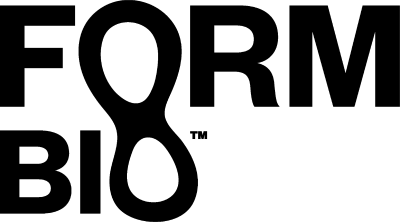Form Bio Helps Life Sciences Professionals Transform Omics Data Into Breakthrough Insights Through Google Cloud
Google Cloud’s Powerful AI Models for Healthcare and Life Sciences Research Now Available as Point-and-Click Workflows via Form Bio's Bioinformatics Platform, Available on Google Cloud Marketplace
DALLAS, March 14, 2024 (Newswire.com) - Form Bio, the breakthrough computational life sciences solutions provider, today announced the availability of Google Cloud’s innovative AI-based models for healthcare and life sciences research as point-and-click workflows via Form Bio’s bioinformatics platform. Form Bio is a Google Cloud Premier Partner and helps companies leverage Google Cloud’s Multiomics Suite announced in 2023. With this announcement, Form Bio is providing an avenue for Google Cloud’s Vertex AI-based omics models to be utilized on a point-and-click basis. Additionally, Form Bio’s comprehensive and easy-to-use cloud-based bioinformatics platform is now available on Google Cloud Marketplace allowing life science professionals to utilize its AI solutions on Google Cloud's trusted, global infrastructure.
Google Cloud’s advanced AI/ML models afford life sciences researchers a variety of capabilities for analyzing and transforming large biological datasets via deep learning, neural networks and more. While already available and executable via popular code repository and containerization solutions, the same Google Cloud models can now be run with just a few clicks on Form Bio’s easy-to-use bioinformatics platform — dramatically reducing the barriers between bench science operations and Google Cloud’s sophisticated AI/ML innovations.
Examples of the AI-based omics models now available via Form Bio include:
- DeepVariant: A deep learning-based variant caller that takes aligned reads (in BAM or CRAM format), produces pileup image tensors from them, classifies each tensor using a convolutional neural network, and reports the results in a standard VCF or gVCF file.
- DeepSomatic: An extension of deep learning-based variant caller DeepVariant that takes aligned reads (in BAM or CRAM format) from tumor and normal data, produces pileup image tensors from them, classifies each tensor using a convolutional neural network, and finally reports somatic variants in a standard VCF or gVCF file. DeepSomatic supports somatic variant calling from tumor-normal sequencing data.
- DeepTrio: An extension of DeepVariant intended for variant calling of trios or duos. The main advantage of DeepTrio is that genetic inheritance is considered by a neural network for calling variants in trio samples. Also, variant candidates are generated from all samples at once, which ensures a genotype call is made for any position in the trio with a variant. Since DeepTrio is built on top of DeepVariant, general information for DeepVariant also applies to DeepTrio.
- DeepVariant for RNA-seq: An extension of DeepVariant, a deep-learning-based variant caller, to learn and account for the unique challenges presented by RNA-seq data. The DeepVariant RNA-seq model produces highly accurate variant calls from RNA-sequencing data, and outperforms existing approaches such as Platypus and GATK.
- DeepConsensus: An alignment-based loss to train a gap-aware transformer–encoder for sequence correction. DeepConsensus uses gap-aware sequence transformers to correct errors in Pacific Biosciences (PacBio) Circular Consensus Sequencing (CCS) data. This results in greater yield of high-quality reads.
- DeepPolisher: A transformer-based sequencing correction method similar to DeepConsensus. DeepPolisher is designed to identify errors in genome assemblies. DeepPolisher takes haplotype-specific reads aligned to phased assemblies and produces a VCF file containing potential errors in the assembly.
- AlphaFold Protein Structure Prediction: A deep learning-based protein structure prediction system developed by Google DeepMind. AlphaFold can help predict protein structures with remarkable speed and accuracy and has outperformed other methods in several protein structure prediction challenges.
These models help scientists make more use of increasingly vast amounts of biological data while accelerating computational aspects of their research. By accessing these Google Cloud innovations through Form Bio, life scientists can reach new data science insights with little effort and a fraction of the time.
Form Bio offers a comprehensive and easy-to-use cloud-based bioinformatics platform to help life sciences professionals do more computational work faster. Natively built on Google Cloud and using other Google Cloud innovations, Form Bio empowers non-technical bench scientists to easily manage their data, run best-in-class workflows and collaboratively move computational aspects of their research forward. The solution is matched to the needs of drug discovery and development, synthetic biology and genetic engineering, significantly reducing the time and resources required to advance research.
“Bringing Form Bio to Google Cloud Marketplace will help life science professionals quickly deploy and manage omics models on Google Cloud's trusted, global infrastructure," said Dai Vu, Managing Director, Marketplace & ISV GTM Programs at Google Cloud. “Form Bio can now securely scale and support customers on their digital transformation journeys.”
To begin utilizing the Google models and others as they become available, explore pricing plans and sign up for Form Bio via Google Cloud Marketplace at https://formbio.com/start.
To see a guided tour and demo of the Form Bio platform including the new Google Cloud Vertex AI-powered workflows, register for this jointly hosted webinar taking place April 3, 2024, at 10 a.m. PT: https://info.formbio.com/google-omics-models-simplified-with-form-bio-webinar.
About Form Bio
Form Bio provides award-winning software and AI solutions to biopharma leaders, empowering them to accelerate their most ambitious scientific objectives. By combining data, technology and expertise, Form’s solutions accelerate timelines from discovery to clinic by providing drug developers with rapid in silico characterization, simulation and optimization of their therapeutics — enabling higher yields, enhanced safety and shorter, less expensive development cycles. With cross-disciplinary expertise spanning software engineering, biology, bioinformatics and data science, the Form Bio team collaborates closely with customers on their most pressing and strategic challenges and opportunities. For more information, visit https://www.formbio.com/.
Source: Form Bio
